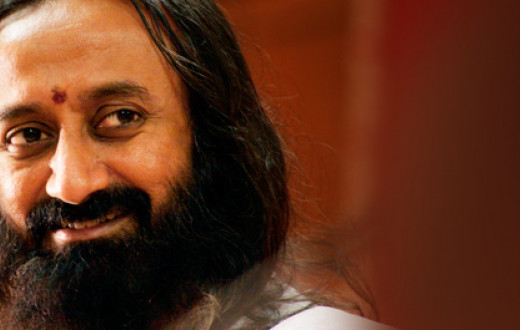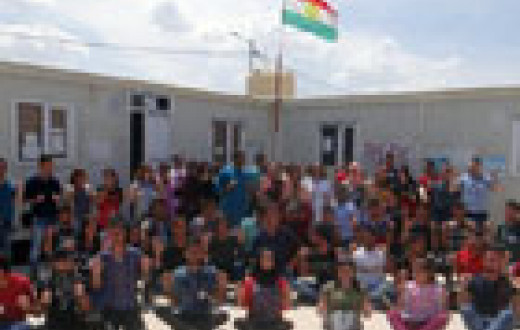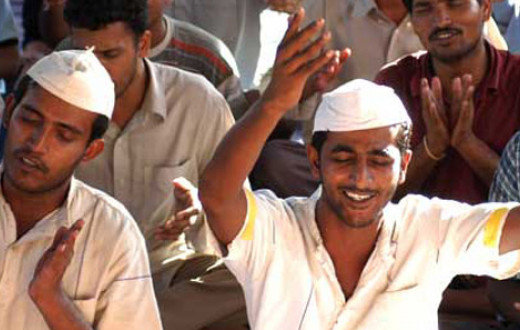Since the 1990s, the Kashmir valley has witnessed countless incidents of militant attacks, army operations, cross-firing, internal displacements, thus creating a feeling of mistrust and revenge.
Kashmir has been a sensitive issue, and without an element of reconciliation, peacemaking is a mission doomed to go bust. Unless the hearts are healed, and victims’ capacity to forgive is raised, Kashmir cannot hope for a lasting and effective solution. For real peace to happen, communication has to be between the families of slain militants, victims of crossfire and martyrs to bring out futility of violence. And, for that to happen, the feeling of hatred, revenge, insecurity, and division needs to give way to love, forgiveness and belongingness, and reconciliation.
What played a role in warming the hearts of those who wish to see real and lasting peace in Kashmir is the reconciliation event, ‘Paigam-e-Mohabbat’ (Message of Love), held in far-off Bengaluru on November 10, 2017.
An initiative of The Art of Living and its founder, Gurudev Sri Sri Ravi Shankar, Paigam-e-Mohabbat has been termed as an unprecedented happening in the Kashmir peace process.
Notably, there were participants who had member/s of their families taking up the gun at some point in time and at the other spectrum were family members of Army personnel as well as paramilitary forces from across India who lost their lives while serving in the Valley. The initiative played a major role in addressing the mistrust among different families, healing their hearts and bringing about reconciliation.
To see the families share the pain they have gone through, come forward to renounce the culture of militancy which has claimed their dear ones, or witness the relatives of the martyrs drop the feeling of hatred and talk of reconciliation has not only turned into a historic moment but has also laid the foundation for building an ecosystem for peace in the troubled Valley.
“We have to go from here with Gurudev's message and mission of peace. Peace is the basic need of every individual and we will work towards it. If Gurudev visits Kashmir to initiate talks, he will be successful. People trust him as he is not going to politicize the matter the way everyone has done in the Valley,” said Farooq, an ex-militant, while speaking at Paigam-e-Mohabbat event.
Interestingly, the event perhaps also marked the first instance of a group of families connected with terrorists publicly renouncing violence and expressing regret over many acts of terror that have taken place in Kashmir.
What has got observers of the Kashmir issue interested in the Bengaluru gathering is the enthusiasm shown by the people of Kashmir; that all categories of victims traveled as far as Bengaluru to lend their support to the efforts of The Art of Living speaks volumes about their yearning for peace. In fact, a majority of them traveled outside the Valley for the first time in their lives.
“There should be peace in Kashmir. It is hard to go out on the streets. My father was killed and burnt in 1999. This shouldn’t happen to anyone else. We don’t want this to happen anymore,” said Fayaz Ahmad Sheik from Baramullah, whose family was a victim of the conflict.
Credit must be given to the man behind the vision and his knack of connecting heart-to-heart. Gurudev and his Art of Living have been working in Kashmir since 2001 to heal the trauma of militancy, facilitate dialogue, reform those who are lodged in prisons, de-stress the army and police personnel and channelize misguided youth towards constructive pursuits. Combining confidence-building with goodwill initiatives ranging from training local youth, including former militants in peacemaking, to providing flood relief and ensuring electricity and drinking water, he is engaged in setting a sustainable agenda for peace in the Valley.
The focus has been on creating an atmosphere of trust and reconciliation by healing the hearts and mending fences. Over the years, Gurudev has established the reputation of someone who is genuinely concerned about bringing peace, without any ulterior motives. Coupled with his deep understanding of the dynamics of the conflict, he can be very effective in building bridges and bringing a semblance to radical ideologies, public rebellions, and posturing that often vitiate the atmosphere in the Valley.
Gurudev is no stranger to bringing opposing parties to reconciliation. He effectively played that role in Colombia in 2015 by convincing the leaders of the Colombian rebel group FARC (Revolutionary Armed Forces of Colombia) to adopt the Gandhian principle of Ahimsa or non-violence. He also intervened in the former Yugoslavian enclave of Kosovo after the civil war to boost reconciliation and help war victims reclaim their lives.
Can he do an encore in Kashmir with the Paigam-e-Mohabbat initiative?











